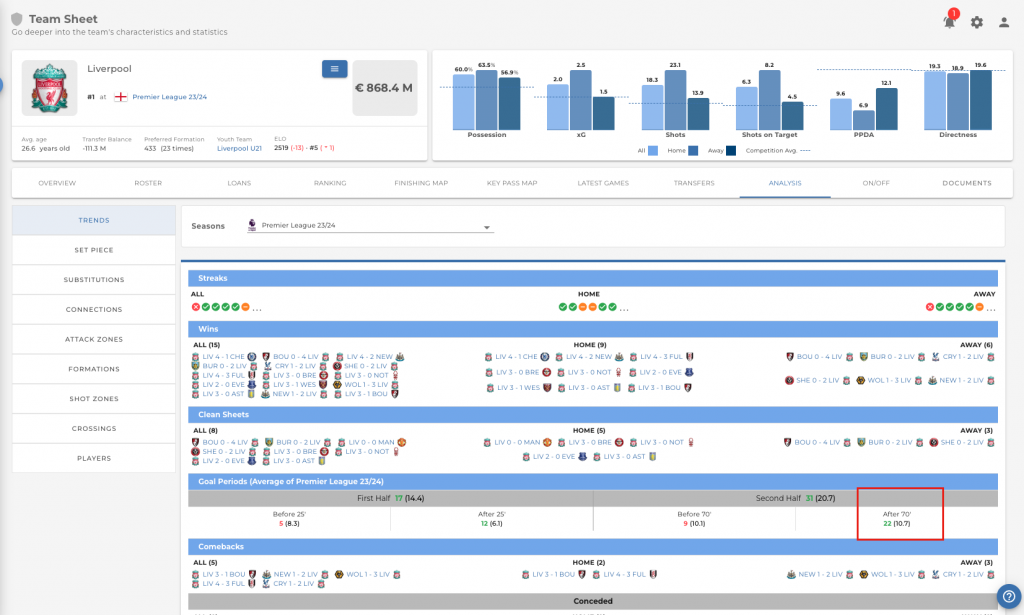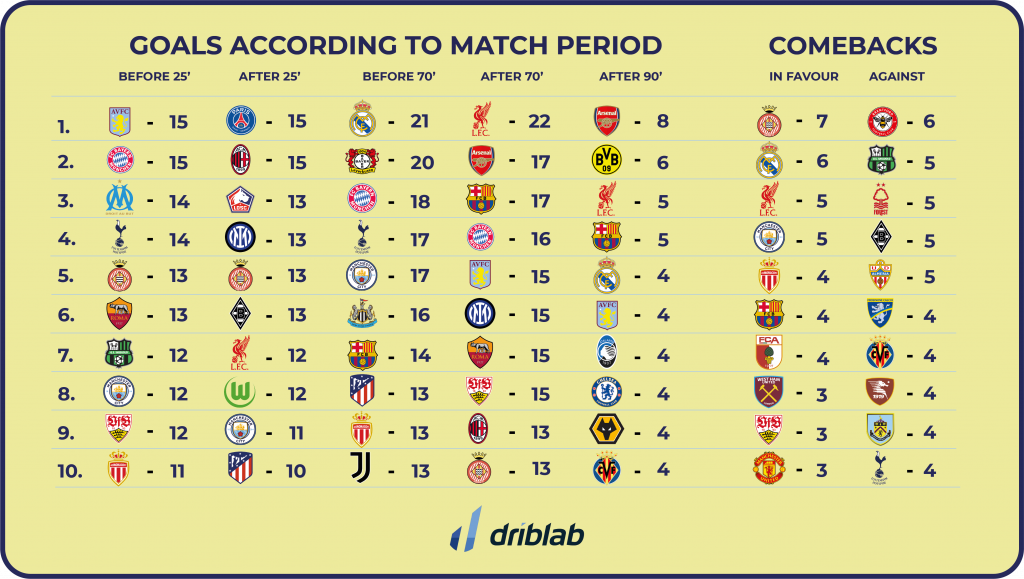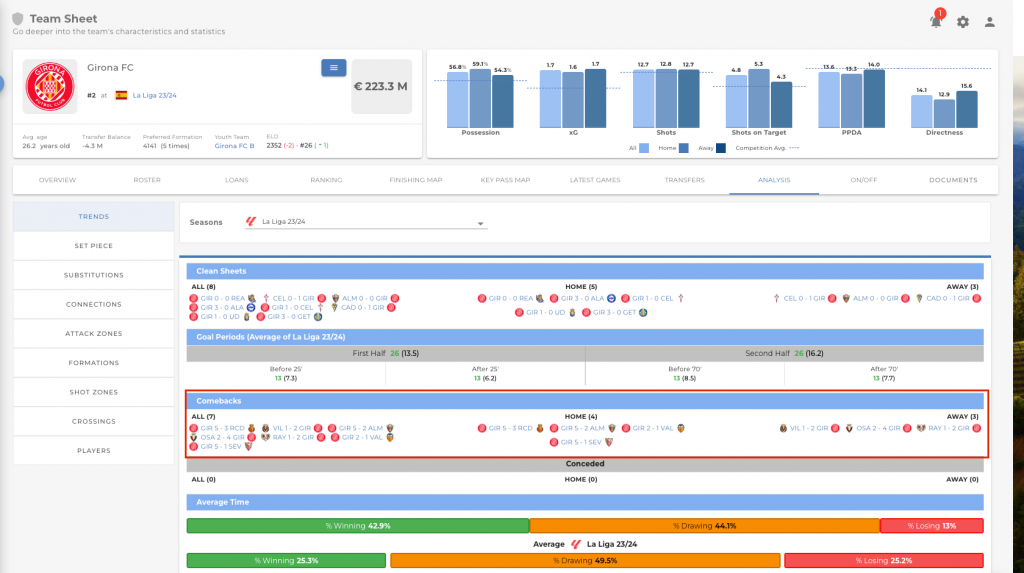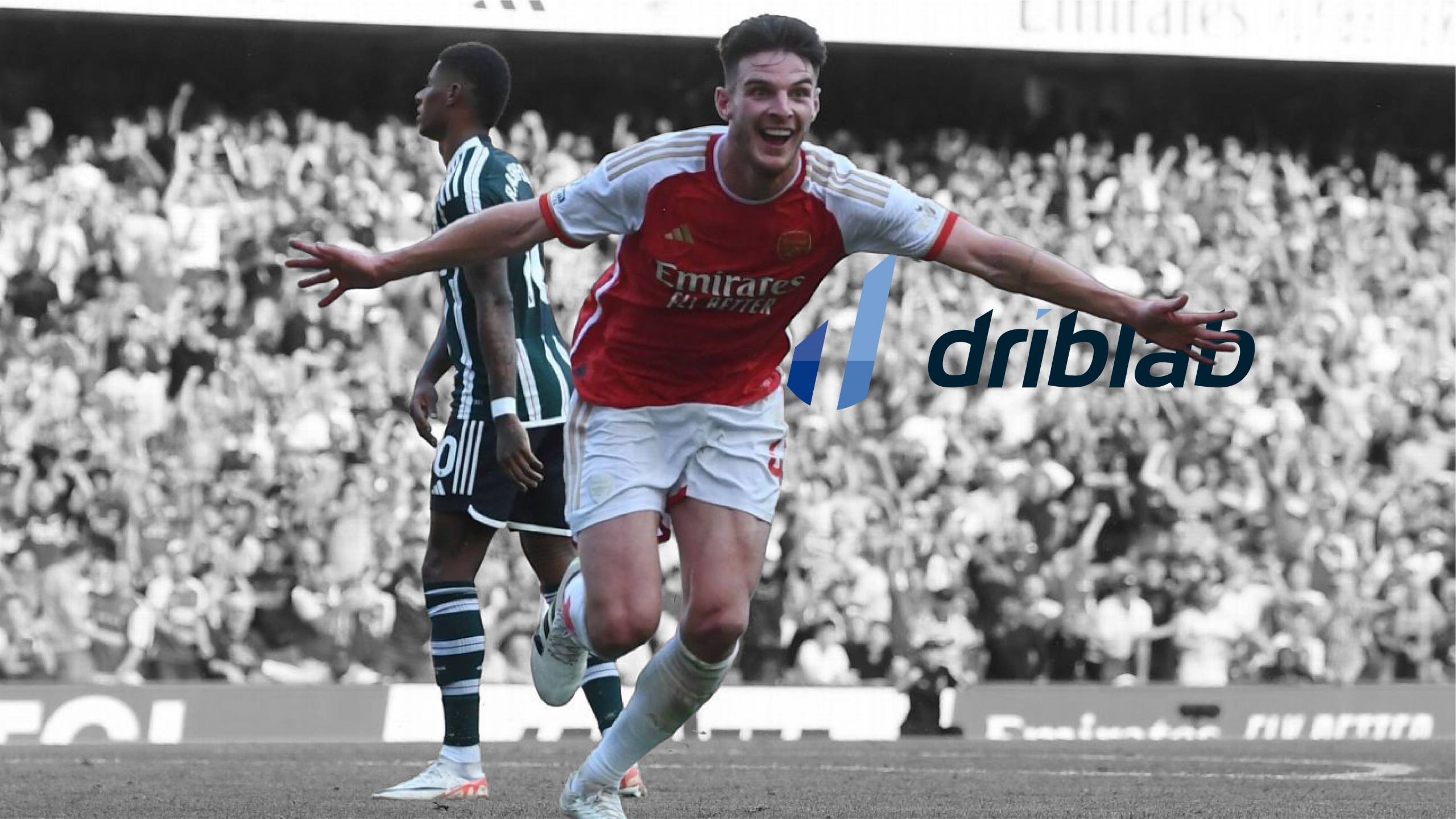For some time now, we’ve been including additional valuable information in all our models and advanced statistical metrics, referring to each team’s competitive dynamics. For instance, we gather data explaining how teams react based on the period of the game they’re in, which can provide different insights to any club analyst analyzing the team.

Knowing how many goals a team scores after the 70th minute or how many times they’ve managed to come back from behind gives significant clues about how the team competes in the late stages or at the beginning of games. In the following table, we’ve summarized the top 10 teams that have scored the most goals per period of the game, and which teams have produced the most comebacks in their favor and which have conceded the most comebacks against them.

Did you know that Tottenham has conceded 25% of its goals from the 90th minute onwards? Or that no team has been overturned more times from a winning position than Brentford? Among the many interpretations we can draw, there are some extraordinary ones. For example, Liverpool has scored 22 goals after the 70th minute, while Arsenal is the team with the most goals scored after the regular 90 minutes, with 8. It’s in those minutes where the greatness of the clubs is demonstrated, and where championships are likely to be decided.

Aston Villa and Bayern are the teams with the best starts to games, scoring up to 15 goals before the 25th minute. And among the season’s big surprises, perhaps none are as significant as Michel’s Girona, competing for the top spot against Real Madrid, becoming the team with the most comebacks in their favor in all of Europe, with 7.
Founded in 2017 as a consultancy, Driblab has driven innovation through data in all aspects of professional football. Thanks to a transversal model, its database collects and models statistics in all directions. From converting matches and videos into bespoke data for training academies to developing cutting-edge technology, helping clubs, federations and representative agencies in talent scouting and transfer markets. Driblab’s smart data is used by clubs all over the world, with success stories such as Dinamo Zagreb, Real Betis and Girondins Bordeaux among others. Here you can find out more about how we work and what we offer.














